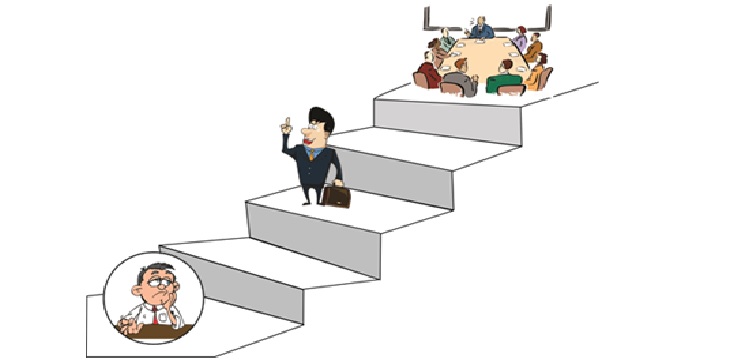A) Decisions at home
We all pass through different stages of decision making in life.
1. When a child is born, he makes no decisions during initial phase of his life. All decisions are of parents.
2. As he begins to crawl till he gets into studies, few decisions become his, most still are held by parents.
3. From late teens till employment most decisions are his, few are still taken by parents.
4. Finally he grows into taking all decisions of his own in life.
B) Decisions at work
1. At entry level, during training and induction, employee has no decisions of his own to make. He does as told by the seniors.
2. Accustomed to his job he now begins to take few decisions of his own till he rises to the position of front line management. Most decisions are still held by the bosses.
3. He rises to middle management position and higher order in job where most decisions are his, yet few are held by the owners or the board.
4. If he becomes an entrepreneur, CEO or the Managing Director some time, he is free to take all decisions of his own.
With respect to the decisions at work, it may be noted that reference is not to the quantum as much as to the bearing the decisions have on overall development of the organization and business. Life is easy at work if one understands the following:
a) I cannot take this decision as it violates the core philosophy of business.
b) This is my domain & I can take this decision without any approval from or information to the senior.
c) I can take this decision, but I need to inform my seniors.
d) I can take this decision only on approval from higher ups.
The above does not prohibit anyone from seeking advice and counselling from whosoever. If everyone observes restraint and exercises discretion as above, one would be happy and equally effective in life and at work. Given time tested decisions at work and rising experience, one may gradually expand quadrants c) and b). This would mean assuming authority, becoming assertive and owning up responsibility for the outcome. The rising proportion of two quadrants confirms maturity and growth in life and career.
It may be noted that “good decision making” is a separate chapter.




Leave a Comment